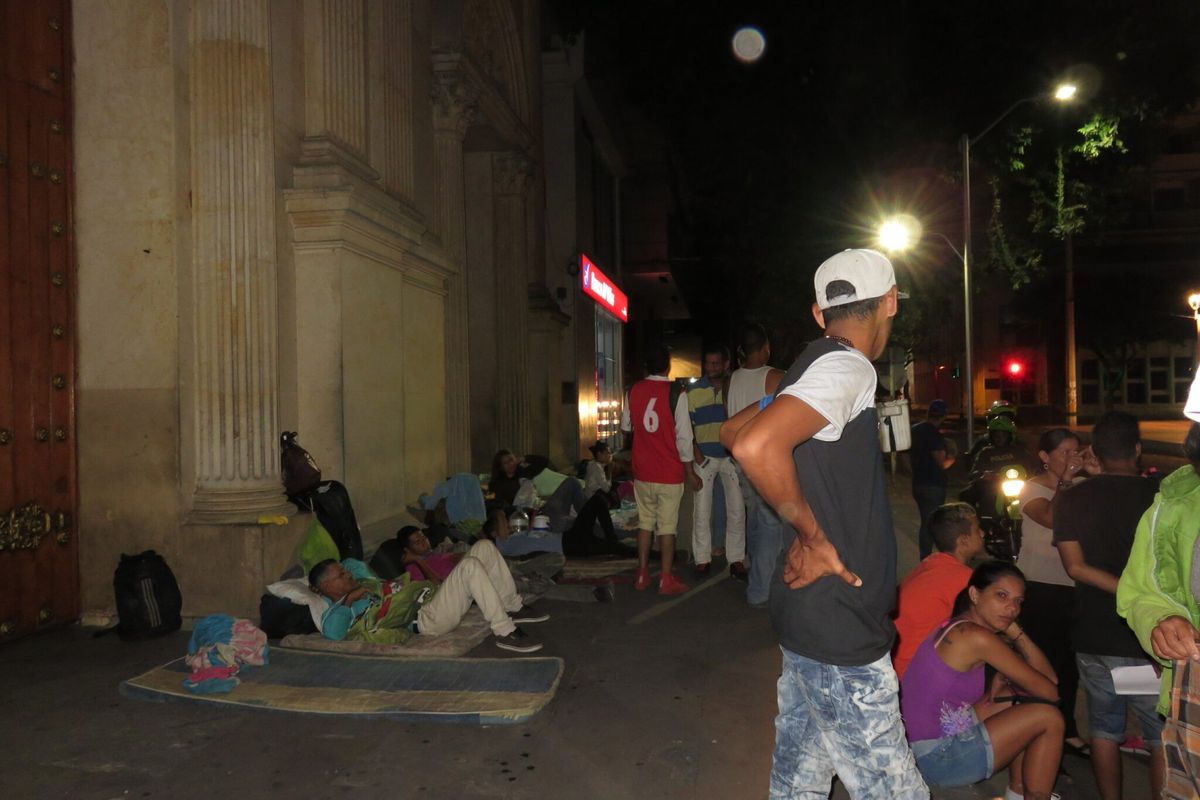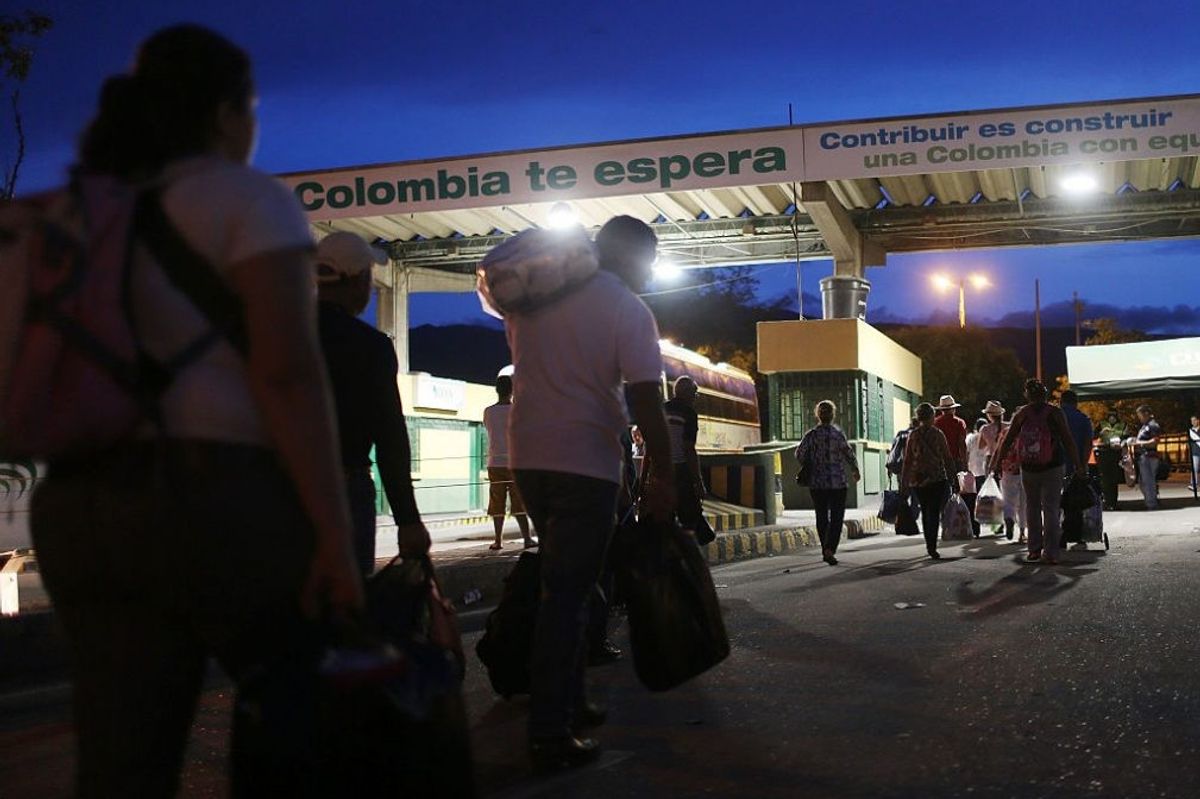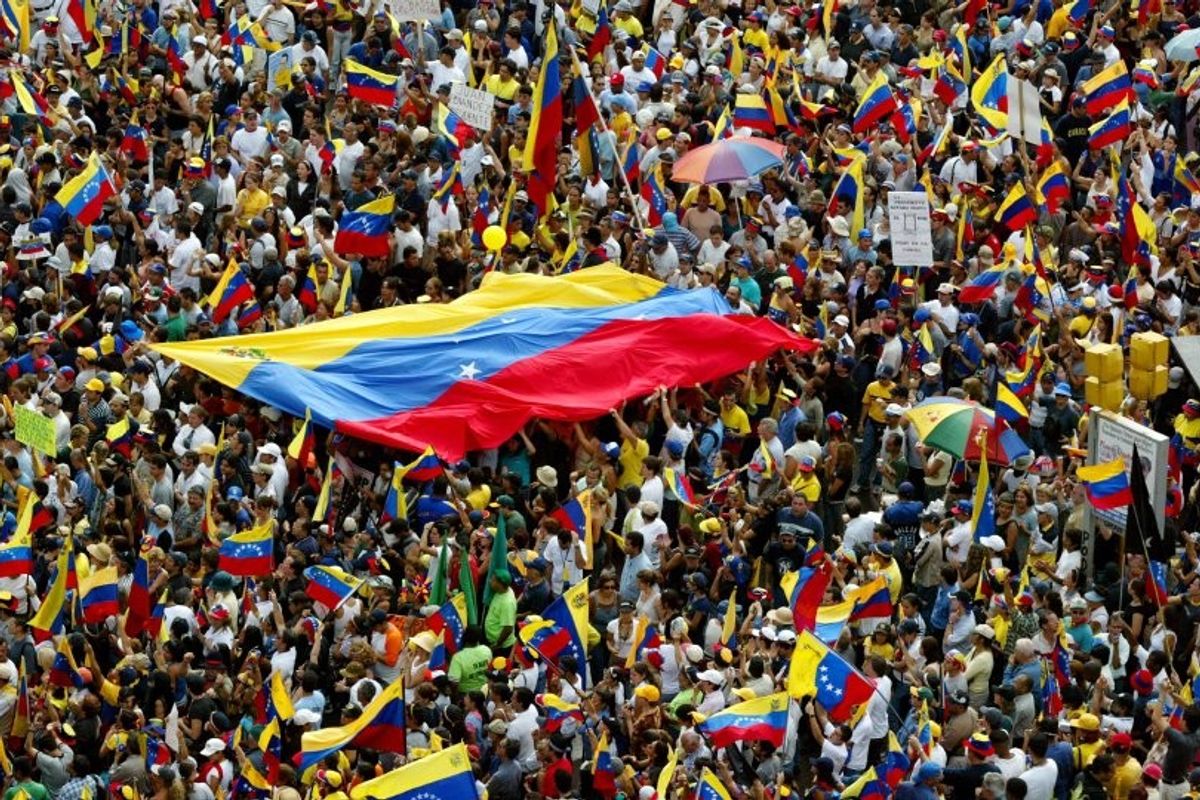The unexpected vote in Colombia to reject the peace deal with the FARC has left the country in shock and its leaders scrambling to determine a path forward. In a conversation with The Cipher Brief, I. William Zartman, a Professor Emeritus at the Johns Hopkins University School of Advanced International Studies, said President Santos must find a way to reach an agreement acceptable to the public without driving FARC back to the woods.
The Cipher Brief: Why do you believe so many Colombian voters rejected the peace deal?
I. William Zartman: They (the opponents) were organized, and better organized by a personal vendetta campaign by former president Alvaro Uribe against current president Juan Manuel Santos. Uribe gave a voice and a leadership to those people’s fears. He did it during the past two years with untruths, playing on what people thought might happen. And, he crystalized the fears that were already there and he ran a better campaign—a negative campaign is always easier to lead than a positive campaign — than Santos, who was not terribly strong in his public relations activities.
TCB: Both President Santos and the FARC leadership have indicated they will continue to work towards peace; what can they do differently this time?
IWZ: This agreement becomes the stalking horse, that is, the measure against which they are negotiating. The question now becomes, how much more does he have to “improve it” in order to get it past the public? Unfortunately, that’s an open ended question. It’s a closed beginning, so to speak, but open ended. You can’t do worse in the public sense, but how much better does he have to do to get by the public?
The other question is, how much “better,” in the sense that we’re looking at it, will the FARC accept? That is, how much worse for them? At what point are they going to break off and go back to the woods?
There’s always a chance of a rebellion within the FARC, the younger people who say, “enough of this, we’ll go back to the life we had before.” And that’s the life of organized anarchy in the countryside, which they could very easily pursue. So, those are the constraints on the two sides. They can try to negotiate these points, particularly the points of justice, that were so hard to arrive at in the previous negotiations.
TCB: Some say the deal was rejected because the deal was too lenient on FARC fighters.
IWZ: That’s right.
TCB: Will disarmament, reintegration, and political participation by the FARC ever be possible?
IWZ: There are two aspects I think of the justice question. There’s the past and the future. For the past, the public wants a harsher punishment for the leaders of the FARC. Although the punishment that they got out of this agreement was, in general, no better than the punishment meted out to the right wing militias by Uribe, under the previous administration, in order to get them to lay down their arms. So, the verdict on “how justified was the punishment?” is, if anything, a judgement matter. But that can be harsher. That means that some of the leaders are going to have to pay with jail sentences or something like that, and that’s what’s required.
The future business is the question of participation. The FARC believes that it failed by using violence in order to get its program passed, but that it can succeed by using politics. It wants to get out of the countryside and campaign and win seats in parliament. As democrats, we ought to be able to face that. Democracy is a test of the validity of such claims. And that’s very important to the whole system.
Now, for the public on the other hand, one of the fears that Uribe played on was that this agreement makes Colombia a Venezuela. In other words, it opens the possibility that a terrible government like in Venezuela will come on the back of the FARC in Colombia—that is absolutely ridiculous. Any well advised observer of Colombia will agree: people are not like that. The chances of the FARC winning is zero. But that was typical of the Uribe campaign. It played on fears. A future agreement will have to provide the formula that I’ve talked about for quite some time: participation for demilitarization. In other words, you put down your arms and democracy is opened up to you. It has to provide that. They may be able to play with some conditions, but I think that’s rather hard to do; democracy is open.
TCB: How much of an impact on narcotrafficking in Colombia will this have and what about the overall level of violence in the country?
IWZ: The overall level of violence in the country is going to depend in part on whether the FARC goes back to the jungle and goes back to violence. When things like this break down, that often happens. They go back, and they make a show of strength. Then that forces the government to make a counter-show of strength, and then we’re back into subsequent rounds, unless we can have only one round of a show of strength—one against the other—and then they come back to the table wizened by that. They had that in South Africa, for example and in negotiations in other places, the return to violence as a push to negotiations.
Narcotrafficking is not the monopoly of the FARC. There are lots of little bands of people not nationally organized but locally effective and working with the bandas criminals (BACRIM). I don’t think it will have a major effect on the narcotrafficking.
TCB: In terms of peace negotiations, what lessons can we learn from this result in Colombia?
IWZ: On one hand, any kind of second guessing is going to be facile and probably not terribly deep. There are lots of little things that might have made a little difference in one meeting or another. But that said, I think a better job is needed in public relations - the selling of this agreement. People generally agree that that was Santos’s weak point. He was a better negotiator than he was a public appeals figure.
Now that’s easy to say for two reasons. First of all, negotiations like this have to be secret. So, you can’t break your secrecy and say too much, and particularly in the process of looking tough to get a bit of a better concession from the other side.
Second, as I said, a negative campaign is easier to direct than a positive campaign. For Uribe, his message was “why negotiate now when we’re just at the point of beating them?” which was a lie. It’s impossible to beat the FARC. A continued level of violence might have remained, but they were indeed weakened and that’s what brought them to the table; their change in calculation. That said, a better positive campaign is required to overcome people’s fears. Now they see what an agreement looks like. They barely, barely—54,000 people is not a lot for a country of that size—defeated the agreement. Even if they had won, they would have barely, barely won. So it becomes a public relations exercise.
What can we learn? It’s easier to play on people’s fears than on their hopes, and that’s the balance. Psychology has showed us that people are more afraid of what they’ll lose than they are happy about what they’ll get. They know what they’ll lose, they’re uncertain about what they’ll get. They value their losses more than their gains. Life is good in Colombia in lots of places. And so people were afraid that they were in danger of losing something, and that’s the calculation that one has to negotiate against.
However, the rejection also strengthens government's hand in re-negotiating with the FARC, testing the rebels' real desire for peace and participation, and showing them what they sacrifices they have to make to make a publicly acceptable agreement.
The other lesson is positive. It’s the idea of a mutually hurting stalemate. The two sides were stalemated. The government couldn’t reduce the FARC any further, and the FARC couldn’t get the goals that they wanted. They were both stuck, and they were unhappy being stuck, and the country was suffering in its economic growth from being stuck in this conflict. It’s costly to them, to the country, even if in Bogota life is good. It shows that the best way to get to a negotiation, even if the negotiation fails in the end by going to the public, is that the parties have to find themselves stuck in their conflict and want—together— to get out of it.










